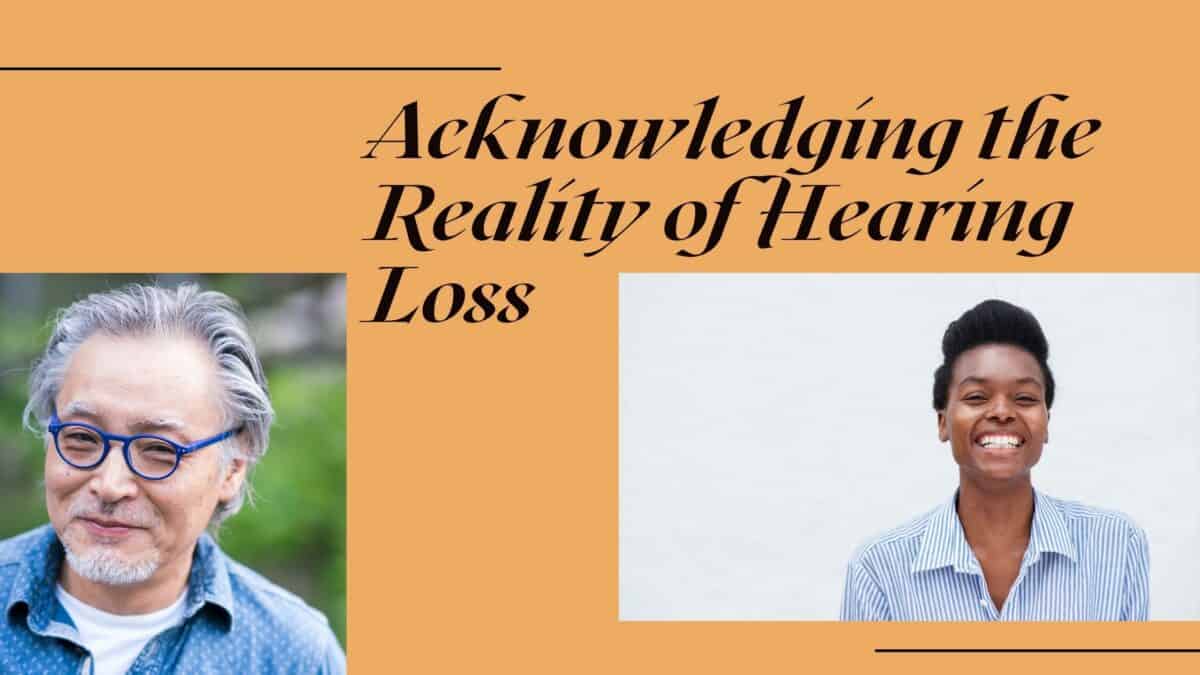Acknowledging changes to your hearing health can be challenging. There are numerous misconceptions about hearing loss that contribute to the stigma still associated with the condition. This often makes it difficult to readily recognize and take action towards addressing hearing loss symptoms. Illuminating this is how long it takes for people to seek treatment – it takes an average of 7 years. But acknowledging the reality of hearing loss is the first step towards accessing the countless benefits of treatment. Treating hearing loss can profoundly transform your daily life and health in countless ways.
What Causes Hearing Loss?
Several factors can cause hearing loss. A few of the most common causes include the following:
- Loud noise: one time or consistent exposure to loud noise can permanently damage hearing. Loud noise can damage the hair cells in the inner ear. These sensory cells send important information about sound to the brain which allows the brain to further process these signals. This is what allows us to understand what we hear. Loud noise can cause these sensory cells to lose sensitivity, making them increasingly susceptible to damage over time. Weakened sensory cells prevent them from helping the brain process incoming sound, producing a hearing loss.
- Aging: aging is another common contributor to hearing loss. This can occur as a result of a few factors including the cumulative impact of loud noise exposure over time as well as existing medical conditions that also impact older adults disproportionately and are linked to hearing loss development.
- Medical conditions: extensive research shows that numerous medical conditions increase the risk of developing hearing loss. This includes diabetes, cardiovascular disease, hypertension, and osteoporosis. These medical conditions impact blood flow throughout the body as well as the healthiness of bones which can impact the capacity of the ears to absorb and process sound effectively.
Other causes of hearing loss include head injuries, chronic ear infections, autoimmune conditions, and inner ear disorders.
Recognizing the Early Signs of Hearing Loss
Hearing loss reduces one’s ability to perceive and process speech as well as sound due to various symptoms that take a toll on hearing. Being able to recognize early signs of hearing loss can help you identify changes you may be experiencing. Common signs include:
- Struggling to hear in places with background noise (restaurants, parties, parks, etc.).
- Sounds are slurred or muffled.
- Asking others to repeat themselves, speak louder, or slower.
- Increasing the volume on your electronic devices (phone, TV, speaker, etc.).
- Pretending to hear and going along with a conversation.
- Lip reading to identify individual words.
- Feeling drained after conversations and engaging with others.
- Being able to hear more clearly out of one ear compared to the other.
- Finding yourself saying “huh” or “what” frequently.
- Missing parts of a conversation or experiencing more miscommunication than usual.
These symptoms can be experienced mildly to more profoundly. People often assume that because they can still hear, they either are not experiencing hearing loss or it’s not that serious. But these symptoms can worsen the longer hearing loss remains untreated. So acknowledging what you are experiencing and taking action as soon as possible is critical to your hearing health and wellness.
Treating Hearing Loss
Treatment starts with having your hearing thoroughly assessed. Hearing tests involve a painless process that measures hearing capacity in both ears. This noninvasive evaluation identifies any hearing loss and the degree of impairment you could be experiencing. Once your hearing needs are established, your hearing healthcare provider can make recommendations that can meet those needs in ways that maximize your hearing capacity.
The most common treatment for hearing loss is hearing aids. These are medical devices that are equipped with innovative technology that absorbs and processes sound. This support alleviates hearing loss symptoms, making it easier to hear and communicate. Treatment offers a myriad of benefits including strengthening communication, improving relationships, enriching social life, and bettering overall health. Treating hearing loss reduces various health risks including cognitive decline, depressive symptoms, and accidental injuries. These benefits transform the quality of life, health, and wellness.
Call us today to schedule an appointment for a hearing consultation. We offer comprehensive services and individualized care that is invested in supporting your hearing health journey.

